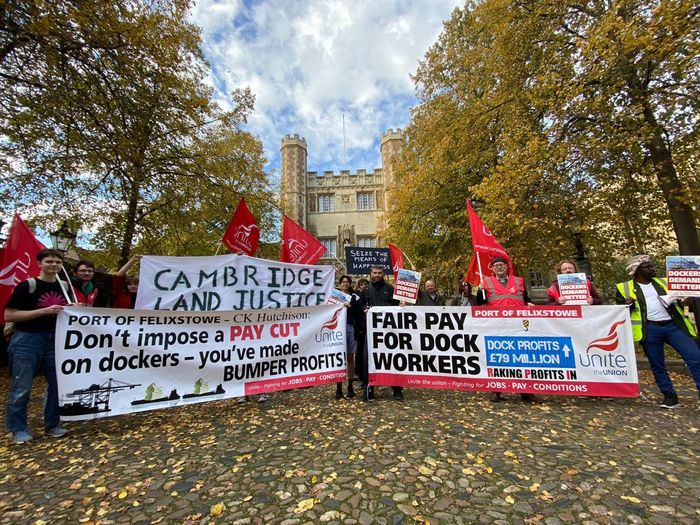UCU vote for strike action across 150 universities
The UCU is the first education union to secure a national strike mandate since new trade union laws were introduced in 2016

The UCU have announced that staff have voted yes in two national strike ballots, triggering industrial action in the coming months. Over 70,000 university staff at 150 universities voted in two ballots on pensions, and pay and conditions, earlier today (24/10).
This will be the fifth year of strike action at the University of Cambridge, with the series of industrial disputes beginning in February 2018 over pension cuts. The dates of upcoming strike action have not been announced.
Strikes last year saw three weeks of disruption, with much centrally organised teaching cancelled. Supervisions and other college teaching was unaffected, however.
Picket lines were erected around Cambridge, including at the Downing and Sidgwick sites, to discourage students from using their faculties and attending lectures.
The UCU is the first education union to secure a national strike mandate since tightening of trade union laws in 2016.
In both ballots over 80% of those polled voted to strike. Critically, the UCU met the 50% turnout threshold nationally, meaning this ‘yes’ vote would enable action across the entire sector.
Cambridge could now see strike action once again, along with 150 universities across the country. The scale of industrial action is set to be ‘unprecedented’ for the UK’s higher education sector.
The University and Colleges Employers Association (UCEA) had offered staff a 3% pay rise package. However, the UCU argued that with the retail price index showing inflation at 12.3%, this offer amounted to a real-terms pay cut.
The ballot comes amidst the cost-of living crisis, with people across the country facing rising energy prices, increasing rent burdens, and projections of a historic fall in real incomes.
The industrial action also aims to tackle casualisation in the sector. Long been an object of the UCU’s ire, the union blames it for economic insecurity, higher workloads and greater incidence of mental health issues.
The UCU’s research suggests that around 39% of academic staff at Cambridge are on fixed-term contracts – higher than the national average. The UCU is demanding a pay uplift of 2% over Retail Price Index (RPI) inflation, a framework for eliminating insecure work practices, and action to reduce workloads.
President of UCU Cambridge, Michael Abberton, told Varsity: “We are delighted that our first national campaign for an aggregated ballot has been won so decisively and in truly record-breaking style. These are truly historic times for Cambridge UCU, as we are on the verge of signing our first recognition agreement with the university.”
UCU general secretary Jo Grady said: “Today history has been made by our members in universities, who in huge numbers have delivered an unprecedented mandate for strike action.”
On the announcement, the university said, “we respect the mandate that our colleagues in UCU have delivered. The university has always strived to minimise any cuts to pensions and to provide competitive and equitable pay. We will try to minimise the disruption to student life and we will be working with UCU to manage that.”
 News / Cambridge student numbers fall amid nationwide decline14 April 2025
News / Cambridge student numbers fall amid nationwide decline14 April 2025 News / Greenwich House occupiers miss deadline to respond to University legal action15 April 2025
News / Greenwich House occupiers miss deadline to respond to University legal action15 April 2025 Comment / The Cambridge workload prioritises quantity over quality 16 April 2025
Comment / The Cambridge workload prioritises quantity over quality 16 April 2025 Sport / Cambridge celebrate clean sweep at Boat Race 202514 April 2025
Sport / Cambridge celebrate clean sweep at Boat Race 202514 April 2025 Features / The TikTok college: using social media in access and outreach15 April 2025
Features / The TikTok college: using social media in access and outreach15 April 2025







